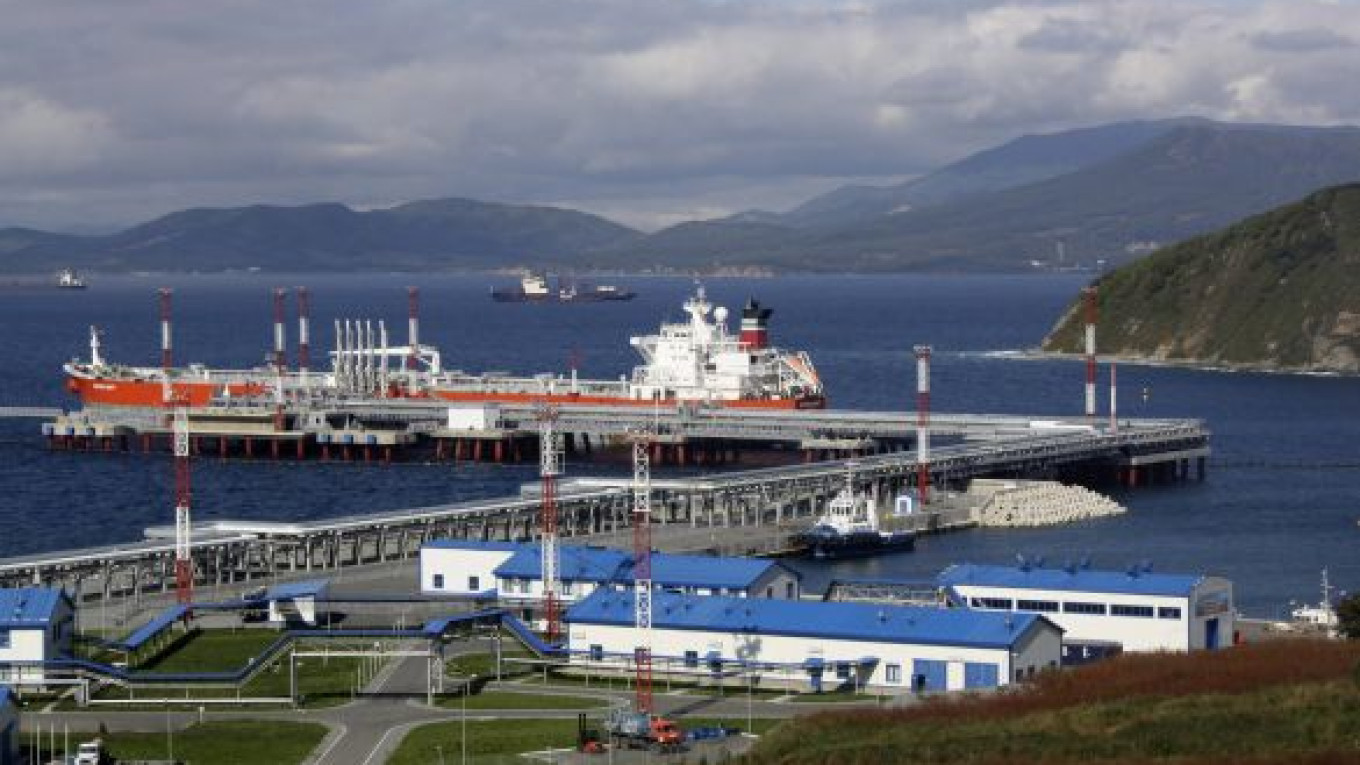KOZMINO, Primorye Region — Some prefer them grilled or steamed, but Russian scientists will now use sea scallops to monitor pollution levels at a Pacific oil terminal.
An enormous sea scallop garden will be set up at the end of this month in the Far East Kozmino Bay, seven time zones east of Moscow. It will be the first Russian port to use mollusks as a water-monitoring instrument.
"Scallops are a very good measure of water pollution because they are very sensitive to contaminants. They absorb and retain impurities," said Natalia Vykhodtseva, the organic chemist at the helm of Kozmino's ecological safety department.
She added that while sea scallops — which prefer to live at depths of 20 to 22 meters — are known for their ability to filter contaminants such as oil or heavy metals, the main purpose of the garden at present is to monitor the bay.
"If the monitoring is successful, we have an idea to create large permanent colonies for scallops, mussels and seaweed at the bottom of the bay and use them to filter the water and keep it clean," Vykhodtseva said.
The Kozmino port, started at the beginning of this year by oil pipeline monopoly Transneft, sits at the bottom of a forested hill range in a bay on the Sea of Japan.
The only export terminal for crude tapped from new East Siberian deposits, it will ship out 200 million barrels next year, meaning that the number of tankers calling into port will double, raising greater concern over pollution.
"If oil happens to leak into the water, the scallops will imbibe it, filtering back out the clean water," Vykhodtseva said.
In the same bay, a short distance from the oil terminal, rusting Soviet-era ships, pipelines and old Navy infrastructure jut out from the water.
The port's chief executive, Boris Melnikov, said the water-monitoring project begins later this month when marine biologists will lower 80 long tubular nets filled with 10,000 of the meaty sea scallops into the frigid Pacific Ocean waters.
Melnikov added that the scientists are contracted from the Pacific Ocean Institute of Bio-Organic Chemistry in Vladivostok, and that divers will study the bay and plot the scallop garden this week.
Since the mid-1990s, scientists at the Far East branch of the Russian Academy of Sciences and the Institute of Bio-Organic Chemistry have studied scallops' chemical and medicinal properties and their environmental and sanitary capabilities.
Once a month, they will draw up several hanging scallop gardens to analyze and document the mollusks' chemical composition, contamination levels, weight and mortality rates.
Organic sea bacteria helped break down the oil that gushed into the Gulf of Mexico following the rupture of BP's Macondo well, but experts say they do not have the same pollution-cleaning potential in Russia's cold waters.
"The colder the water, the less quickly and efficiently bacteria can work to break down the hydrocarbon. So in Russia, their use is very limited," said Vladimir Chuprov, head of Greenpeace's energy department in Russia.
A Message from The Moscow Times:
Dear readers,
We are facing unprecedented challenges. Russia's Prosecutor General's Office has designated The Moscow Times as an "undesirable" organization, criminalizing our work and putting our staff at risk of prosecution. This follows our earlier unjust labeling as a "foreign agent."
These actions are direct attempts to silence independent journalism in Russia. The authorities claim our work "discredits the decisions of the Russian leadership." We see things differently: we strive to provide accurate, unbiased reporting on Russia.
We, the journalists of The Moscow Times, refuse to be silenced. But to continue our work, we need your help.
Your support, no matter how small, makes a world of difference. If you can, please support us monthly starting from just $2. It's quick to set up, and every contribution makes a significant impact.
By supporting The Moscow Times, you're defending open, independent journalism in the face of repression. Thank you for standing with us.
Remind me later.


